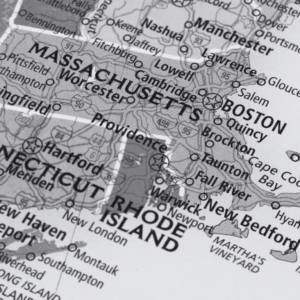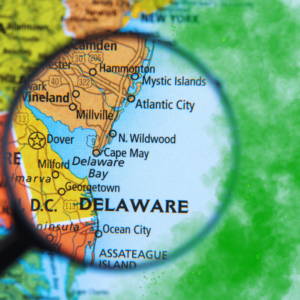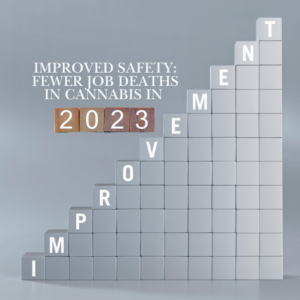What Trump’s Presidency Means for Cannabis Reform in the U.S.

Donald Trump Wins Second Term, Advocates Limited Federal Cannabis Reforms Amid Anti-Drug Stance
In a closely watched election, former President Donald Trump has been elected to a second term, defeating Vice President Kamala Harris. Trump’s campaign was marked by a mix of staunch anti-drug rhetoric and surprising support for certain state-level cannabis reforms. His platform focused heavily on law and order and included controversial proposals like capital punishment for drug dealers, yet also contained endorsements for limited cannabis reforms, particularly at the state level.
Mixed Messages on Cannabis Policy: State Legalization Support and Banking Access
Throughout his campaign, Trump used sharp anti-drug language, at times advocating extreme measures such as the death penalty for those dealing illegal drugs. However, he took a more nuanced approach when it came to cannabis. Trump’s endorsement of a cannabis legalization initiative in Florida—a state where he retains strong influence—caught many by surprise. Although the measure ultimately failed to reach the 60% threshold needed to pass, his endorsement signaled openness to state-level cannabis policies.
Trump also voiced support for federal cannabis banking reforms, recognizing the challenges faced by the industry in accessing traditional financial services due to federal restrictions. Additionally, he indicated support for the ongoing federal cannabis rescheduling process, initiated under President Joe Biden, which seeks to reconsider cannabis’s classification under the Controlled Substances Act. While Trump’s exact stance on these federal reforms remains unclear, his willingness to endorse some form of industry access to banking represents a shift from his more hardline rhetoric on drug policy.
Republican Senate Majority and Cannabis Reform Prospects
The potential for federal cannabis reform under Trump’s second term is uncertain. Republicans reclaimed control of the Senate, while the House composition remains undetermined. Traditionally, GOP lawmakers have been resistant to cannabis reform, which could create obstacles to any substantive changes at the federal level. Although Trump’s support may give some momentum to banking and rescheduling efforts, his unilateral power to enact changes in federal marijuana policy is limited, as any major reform would require congressional support.
During his first term, Trump took a largely passive approach to cannabis policy, signaling tentative support for states to set their own laws but without implementing any federal policy changes. His first attorney general, Jeff Sessions, took a notably hardline approach, rescinding the Obama-era guidance that directed federal prosecutors to deprioritize cannabis enforcement in states with legal markets. Trump’s history of appointing strong anti-drug advocates, coupled with his aggressive language around drug crime, leaves his approach to cannabis reform an open question for his second term.
Florida Legalization Initiative and Trump’s Unexpected Support
One of the most unexpected moments in Trump’s campaign was his endorsement of Florida’s cannabis legalization initiative, Amendment 3. Trump argued that Florida residents should not face criminal penalties for cannabis possession when other states have legalized it. He also suggested that the state legislature should introduce public consumption regulations to prevent nuisance issues like odor, a point he cited as a common grievance in urban areas with legalized cannabis.
Although the majority of Floridians voted in favor of Amendment 3, the measure fell short of the required 60% to amend the state constitution. Trump’s backing of the initiative, despite his general anti-drug stance, reveals a complex approach to cannabis that combines both reformist and conservative elements. He also praised the potential benefits of medical marijuana, calling it “amazing” for patients who need it. While this softer stance was unexpected, it may reflect his recognition of cannabis as a growing issue among diverse voter groups.
Sharp Contrast with Harris on Cannabis and Criminal Justice Reform
Throughout the campaign, Trump frequently criticized Kamala Harris’s prosecutorial record, specifically targeting her stance on cannabis. He claimed that her tenure as a prosecutor led to the incarceration of “thousands” for marijuana offenses, though this characterization oversimplifies her record. Trump’s attacks positioned him as the more lenient candidate on cannabis-related criminal charges, which resonated with voters in states where attitudes toward cannabis are shifting.
The nuanced landscape of cannabis reform left both candidates navigating complex voter expectations. While Harris has previously voiced support for cannabis reform, her role as a former prosecutor allowed Trump to position her as more punitive. Ironically, Trump’s mixed stance may have appealed to a broad spectrum of voters by combining elements of reform with traditional conservative positions on drug crime.
Federal Rescheduling and Industry Banking Access: Key Areas of Interest
With his second term, Trump’s stance on federal cannabis rescheduling and banking access remains a key focus for cannabis industry stakeholders. Rescheduling cannabis to a lower classification would ease research barriers, expand medical applications, and allow greater flexibility in state cannabis markets. Similarly, Trump’s potential support for the SAFE Banking Act, which would provide banking access for cannabis businesses, is a crucial topic as the industry struggles with high financial risks and operational difficulties due to the lack of banking options.
Although Trump voiced interest in these areas, the trajectory of cannabis reform under his leadership is still uncertain. Without strong backing from the GOP-controlled Senate, substantial reforms are unlikely to progress swiftly. However, modest steps like rescheduling and banking access could gain traction if Trump prioritizes them as bipartisan issues and garners enough support from both parties.
Public Safety and Anti-Drug Stance: Balancing Tough Policies with Limited Reform
Trump’s campaign rhetoric emphasized a hardline approach to drugs and crime. He proposed policies targeting drug cartels and advocated for stricter penalties for drug-related offenses. His proposal to impose the death penalty for certain drug offenses raised concerns among civil rights advocates and further highlighted his commitment to tough-on-crime policies. Yet, within this framework, his selective support for cannabis initiatives signals a possible openness to reform when it aligns with voter interests or state autonomy.
By endorsing some state-level cannabis reforms while promoting federal crackdowns on drug trafficking, Trump maintains a balance that could appeal to both conservative and moderate voters. This approach suggests that his second term might focus on limited, targeted cannabis reforms rather than sweeping changes, with an emphasis on enforcing strict regulations on other controlled substances.
Implications for the Cannabis Industry and Future Legislation
Trump’s victory introduces both opportunities and challenges for the cannabis industry. While he has expressed support for certain reforms, such as state-level legalization and access to banking, the broader climate for cannabis reform remains uncertain. The industry may benefit from incremental gains, particularly in banking and rescheduling, but sweeping federal legalization is unlikely given the current Senate makeup and Trump’s unpredictable stance on drug policy.
For cannabis companies and investors, the next few years could see selective reforms that improve industry stability and access, particularly in states where legalization has strong public support. However, federal legalization remains a distant possibility, with the emphasis likely placed on limited, controlled reforms that respect state autonomy.
Donald Trump’s second term brings a complex and mixed approach to cannabis reform. His surprising support for Florida’s legalization initiative, endorsement of federal rescheduling, and advocacy for banking access signal openness to some cannabis-related reforms. However, his tough anti-drug stance and hardline proposals on drug crime complicate the picture, suggesting a future that may see limited federal cannabis reforms rather than a comprehensive overhaul.
As Trump takes office in January, the cannabis industry will be watching closely to see if these campaign promises translate into actionable policies. While some modest reforms may gain momentum, the industry is likely to face continued challenges in navigating the evolving regulatory landscape.











